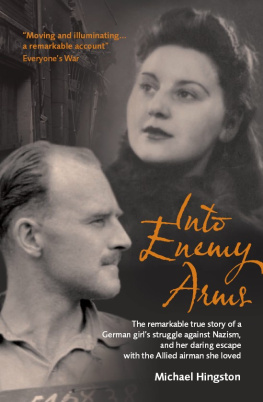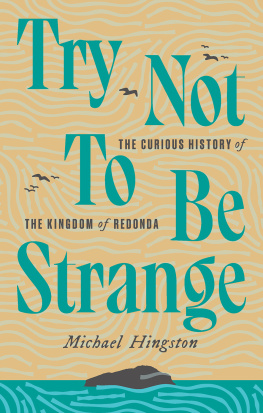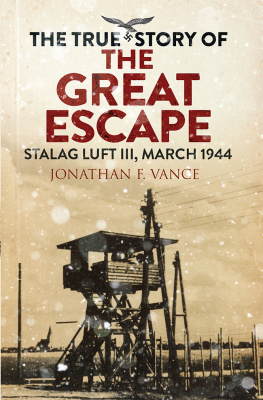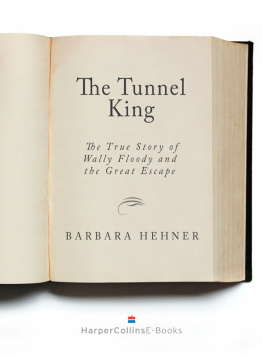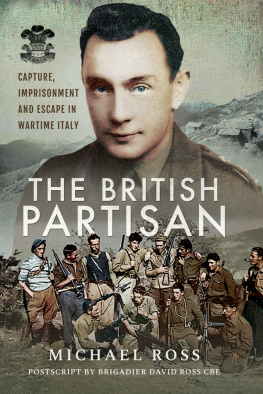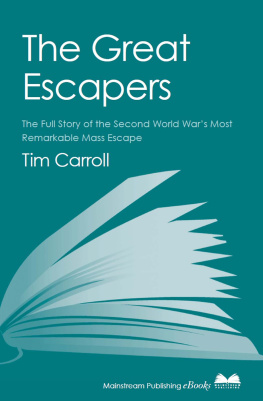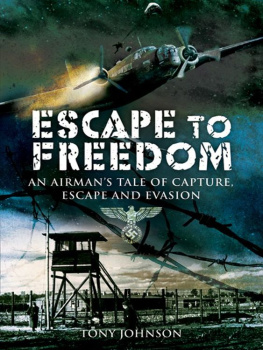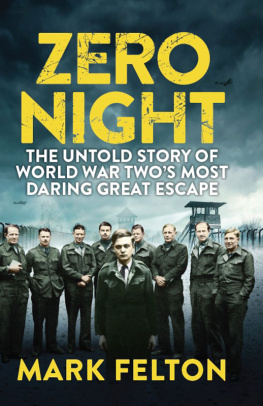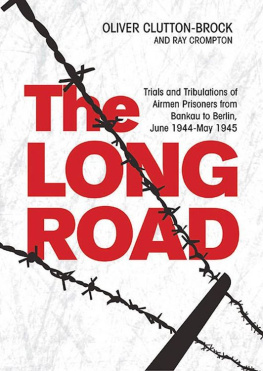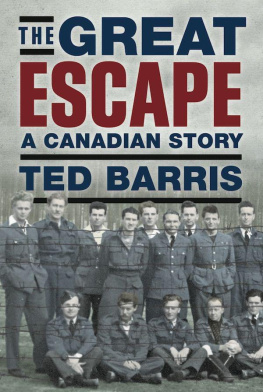

Published by
Grub Street
4 Rainham Close
London
SW11 6SS
Copyright 2006 Grub Street
Text copyright 2006 Michael Hingston
British Library Cataloguing in Publication Data
Hingston, Michael
Into enemy arms
1. Bruncel, Ditha 2. World War, 1939-1945 Germany Lossen 3. Women refugees Germany Biography 4. Refugees Germany Biography 5. Prisoner-of-war escapes Germany 6. Rescues Germany History 20th century
I. Title
943.0864092
ISBN 1 904943 50 0
eISBN 9781908117632
All rights reserved. No part of this publication may be reproduced, stored in a retrieval system, or transmitted in any form or by any means, electronic, mechanical, photocopying, recording, or otherwise, without the prior permission of the copyright owner.
Typeset by Pearl Graphics, Hemel Hempstead
Printed and bound by MPG, Bodmin, Cornwall
All photographs in the book are from the authors collection, except where credited.
Maps by Kerry Ross
Jacket design by Lizzie Ballantyne
This book is dedicated to Ditha Slowey (ne Bruncel) and the memory of Father Helmut Richter and the other German people in Lossen, Lower Silesia, who risked their lives to save twenty-three escaping Allied airmen hiding in their village.
Preface
I WAS aged around five in the early 1950s when I first realised my Aunt Ditha was German. The discovery came as quite a shock. At the time, my primary school friends and I lived on a diet of war comics depicting Germans as hateful square heads given to blundering around yelling achtung and donner und blitzen while being blown to smithereens by the heroic Allies. We played war games in preference to cowboys and Indians and none of us wanted to draw the short straw and be on the German side as we relived our comic book exploits. In those immediate post-war years the message was still transparent, even to a five-year-old: the only good German was a dead one. So I recall anxiously asking my mother how it was that we came to have a German in the family. Her answer was even more of a surprise than the original discovery that I had a German aunt, turning what at first seemed an embarrassment into a source of pride.
She helped your uncle escape from Germany when he was a prisoner of war, my mother explained. The potted version of the story she then recounted went something like this: her brother, my Uncle Gordon, had been shot down early in the war on an aerial mine-laying mission. After nearly five years as a POW he escaped with a group of other prisoners and while they were hiding in a German village, a teenage girl risked her life to help them. Uncle Gordon and the girl fell in love and when the Russians overran the village he brought her home to England with him, where they were married. The family liked her and after all she had done to help my uncle there was no question of not accepting her. So I learned that my Aunt Ditha was something of a heroine and rather than keeping quiet about her, from that day on I enjoyed boasting to my chums about how she saved my uncle from certain death and then escaped from Nazi Germany with him.
At the time we were living in Kenya, where my parents settled immediately after the war. Although Uncle Gordon and Aunt Ditha also moved there, we lived hundreds of miles apart and I only ever saw them once a year when they joined us at the coast on holiday. They always arrived from the long journey up country in a Volkswagen that survived Kenyas rough roads without falling apart or continually breaking down like our British-made rattletrap. Uncle Gordon swore by it. Even after all he had been through as a prisoner of war, he was not the least bit anti-German. I suppose this was only to be expected being married to Aunt Ditha, who I remember as always very kind and loving.
The war was not a hot topic of conversation at home. Those who had been through it wanted to put it out of their minds and get on with life and as far as I can recall, the subject of Uncle Gordon and Aunt Dithas escape together never came up again. Had we lived closer together I am sure that as I grew up I would have wanted to know more about the story. But as it happened the distance between us became even greater after Kenyas independence in 1963 when Uncle Gordon and Aunt Ditha moved to Australia and my family returned to England. Not until many years after my uncles death and almost fifty years after I first raised the question with my mother, did I return to the subject and ask her to tell me the story again in as much detail as possible. Although her memory was patchy I was enthralled by what she was able to recall and recognised immediately that the boyhood account fell far short of capturing the real drama of what had taken place. I was also intrigued by how easily my aunt appeared to have been accepted by a family who had every reason to dislike the Germans, and not just because Uncle Gordon had been their prisoner for almost five years. My mother had nursed RAF casualties during the war and hated what she saw and one of her sisters, who was married to a Dutchman, had endured the occupation of Holland and been reduced to feeding her family tulip bulbs to keep them alive. Aunt Ditha must have been special to win their love however much they wanted to please their brother.
Eager to know the whole story, I telephoned my aunt in Australia and told her that I wanted to try and write a book about her escape with my uncle. She filled in a few gaps but was reluctant to revive painful memories, long since consigned to the past, understandably saying: At my age I simply couldnt cope with the emotional upheaval involved. With regard to the romantic side she told me she was not ready to come to terms with the idea of my innermost feelings being laid bare to public readership. All the same, she said she would think about it.
ALMOST a year went by while I started to research what I could from public records, trawling thousands of escape and evasion and POW liberation reports held at the National Archives at Kew in west London. Slowly I started to piece together the facts. What emerged was that my uncle was one of a group of twenty-three airmen who escaped in January 1945 after their prison camp, in a remote corner of Upper Silesia in the extreme east of Germany, was evacuated before being overrun by the Russians in the depth of one of the coldest winters in living memory. Despite an SS manhunt, they evaded recapture for two weeks until the Russians arrived, and they undoubtedly owed their lives to the selfless courage of the village Roman Catholic priest as well as my aunt and her family, who provided much-needed medicine and food as well as arranging to hide them. Yet the extraordinary saga of their successful escape and subsequent harrowing journey across Poland and the Ukraine to the Black Sea port of Odessa and back to England has never been told.
Although the twenty-three rank as the largest single group of escaped POWs to make it home from Germany before the end of the war, officially only two of them were ever credited with escaping and my uncle was not one of them. Even worse, I was shocked to discover that apart from not being acknowledged as an escaper, he was on an MI9 list of suspected collaborators. This was when my aunt changed her mind and agreed that the whole story should come out since it would be the best way to honour his memory and those of the other men who escaped with him.
This is the true account of what took place, based on my aunts vivid recollection of the events, the memories and eye-witness contributions of others who were involved, plus a great deal of factual research. Because I wanted to understand why my aunt and her parents were prepared to risk everything to help escaping enemy airmen, I asked her to tell me all she could remember about her background and what it was like growing up under the Nazi regime. To some extent then, this is also her memoir, told in her own words which Ive quoted verbatim at length, and includes her chilling account of the appalling atmosphere of fear and rumour in which she spent her childhood and adolescence as well as the heart-rending fate of close Jewish friends before her fateful meeting with my uncle and escape to England with him.

